|
Plenary Keynote Addresses Program To join the Zoom presentations, please click here. Time zone: (GMT-4:00) - US Eastern Time Tuesday, September 10, 2024 Cybernetics and Informatics of Generative AI for Transdisciplinary Communication in Education
Tuesday, September 10, 2024 / 8:00 AM - 8:35 AM 
 Professor Rusudan Makhachashvili, Ukraine Borys Grinchenko Kyiv University, Head of Germanic Philology Department.
Professor Rusudan Makhachashvili is Doctor Habilitated, English and Spanish major, Head of Germanic Philology Department of Borys Grinchenko Kiyv University, Ukraine. Expert of individual grant projects evaluation for the European Commission Horizon 2020 and Horizon Europe Frameworks (MSCA Individual and Global Fellowships). Head of observer institution group for the Horizon 2020 project ELEXIS (European Lexicographic Infrastructure). Expert staff member of the 7th Framework of the European Commission Project IRNet (International Research Network for study and development of new tools and methods for advanced pedagogical science in the field of ICT instruments, e-learning and intercultural competences). Expert staff member of the International Study of Leadership Development in Higher Education (Calgary, Canada). Member of Advisory group of Oxford English Dictionary. Advisor for Ukrainian universities on the development of curricula for master's degree in e-government - Program by Estonian Foreign Ministry & Tallinn University of Technology (Estonia), 2020. Expert of the Ministry of Education of Ukraine for e-learning platforms development (National School Online project). For 7 years, Rusudan Makhachashvili had served as a Vice-Dean for Research, before moving onto a position of the Head of Young Researchers Council to advance policy on interdisciplinary and cross-sectorial inquiry and best academic practices. Rusudan Makhachashvili was awarded the Ministry of Education Scholarship for outstanding research achievement.
Prof. Rusudan Makhachashvili is an academic supervisor of 15 successfully completed PhD theses on innovative social trends in digital communication and linguistic development in digital media. Editor in Chief of the Journal Synopsis: Text. Context. Media. Member of the Editorial boards of such journals as Open Educational E-environment of Modern University, International Journal of Research in E-learning, International Journal of Linguistics, Literature and Culture, Turkish Online Journal of Qualitative Inquiry.
Main academic interests include but are not limited to: interdisciplinary studies in Liberal Arts, digital education, digital humanities, e-society and e-governance, digital literacy development, cognitive and communicative linguistics, sociolinguistics.
Professor Rusudan Makhachashvili is the author of 17 books and over 200 published academic articles on a wide range of transdisciplinary topics covering the scope of research interests. Exemplary published works: Linguophilosophiс Parameters of English Innovations in Technosphere (UK, 2015), Models and Digital Diagnostics Tools for the Innovative Polylingual Logosphere of Computer Being Dynamics (Peter Lang, Berlin, 2020), ICT Tools and Practices for Final Qualification Assessment in the Framework of COVID-19 Lockdown (Poland, 2020), Digital Terraformation: Cyberspace Ontology, Anthropology, and Gnosis (Italy, 2021), Covid-19 context for meta assessment of digital learning on European and Oriental languages programs (USA, 2021), Linguistic Philosophy of Cyberspace (JSCI, USA, 2021).
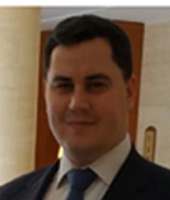 Professor Ivan Semenist, Ukraine Borys Grinchenko Kyiv University, Dean of Oriental Languages Faculty.
Professor Ivan Semenist, PhD, is Dean of Oriental Languages Faculty, Director of Confucius Class and Associate Professor at Borys Grinchenko Kiyv University, Ukraine. Chairman of the Board of the Chinese Language Teachers Association of Ukraine, Editor in Chief of Ukrainian Journal of Sinology Studies. Former Adviser to the Chairman of the Committee on State Building and Local Self-Government of the Supreme Council of Ukraine and CEO Services of Innovative Consulting Company L.L.C. (SIC Company).
He holds a M.A. with honors in World History from the Taras Shevchenko National University of Kyiv, Ukraine (2009). He received his Ph.D. in World History from the Taras Shevchenko National University of Kyiv, Ukraine (2013). Since 2015, have been working at the Borys Grinchenko Kyiv University of Kyiv. He is the author of more than 10 transdisciplinary B.A. and M.A. courses at the Borys Grinchenko Kyiv University. He regularly supports students as supervisor of B.A, M.A. theses. Ivan Semenist was awarded the Kyiv Mayor's Prize for special achievements in academia, the First prize of the Ambassador Extraordinary and Plenipotentiary of the People's Republic of China to Ukraine and the Medal of Borys Grinchenko for outstanding achievement.
Professor Ivan Semenist Initiated Establishment of the first Center for China Studies in Ukraine and equipment of the cutting-edge e-leaning center for Oriental languages studies, initiated and organized a number of international scientific conferences, round tables, and seminars (in Cooperation with CASS): the International Round Table "Transformational Processes in Modern Society: Ukrainian-Chinese Context", International Scientific Conferences "Confucius School: Sources-History-Present", All-Ukrainian Seminar for Chinese Language Teachers, International Scientific Conference to the 5th Anniversary of the "Belt and Road Initiative".
Main academic interests include but are not limited to: oriental studies, interdisciplinary studies in Liberal Arts, oriental languages, cultural and linguistic-literary ties of Europe with the countries of the East, American studies, relations of Ukraine with the countries of the East.
Professor Ivan Semenist is author of 5 books and around a 100 published academic articles on a wide range of transdisciplinary topics covering the scope of research interests. Exemplary published works: Modern Chinese Society -New Perspectives: New research between China and Ukraine scientists (Social Sciences Academic Press, China 2017), Japan's New Role In The World: The Discussion Of Early 1990's (Ukraine 2016), ICT Tools and Practices for Final Qualification Assessment in the Framework of COVID-19 Lockdown (Poland, 2020), Covid-19 context for meta assessment of digital learning on European and Oriental languages programs (USA, 2021), Interdisciplinarity and Skills Development in Final Qualification Assessment: Survey Study for European and Oriental Languages Programs (JSCI, USA, 2021). Abstract
As a product of modern civilization, the digital reality has become an independent format of being. Accordingly, electronic media act not only as a means of transmitting information, but also reveal their own world-creating, meaning-making and, as a consequence, communicative potential. The global digital realm stands as an integral environment, demanding new cognition and perception ways via complex philosophic, cultural, social, linguistic approaches, providing unlimited opportunities for human intellect, communicative development and research.
Cybernetics of transdisciplinary communication is modeled through regulation and control in the education system, focusing on the flow of information and how it is used by the system to control and course-correct itself.
Multidisciplinary input into the education design and content in the form of data, information and facts across different source domains of human knowledge in order 1) to constitute the thematic content of education; 2) to constitute the semantic referents of key terms and concepts; 3) to constitute the vast framework of reference and contexts for professional communicative application. Interdisciplinary connections of the educational content for digital education – internal interconnectivity of theoretical and applied disciplines, external interconnectivity of Arts and Humanities content with non-related areas of human knowledge (computer science, physiology, anthropology, philosophy etc.). Transdisciplinary output in the transcendent nature target knowledge domains and universal applicability of skills, training and outlook of the professionals upon graduation. Interdisciplinary and transdisciplinary skills ensure universal and adaptive applicability of Arts and Humanities education on the digital job market across various spheres of social activity.
Informatics of transdisciplinary communication is viewed through the consecutive transformations of a general information system. Given the nature of increasingly AI-augmented context of education and communicative application, it is suggested to consider the different types of information source and information destination (human and machine(AI)/computer/program, accordingly) in the structure of the groundwork Communication model (Cf. Claude
Shannon), when communication is approached as the core factor of interoperability of source and target knowledge and application domains. Subsequently, a model of interdisciplinary dimensions of digital education, informed by the nature and subjects of communicative interaction of the stakeholders and generative AI, is elaborated.
Communication is considered as a factor of interoperability of source and target knowledge as well as transdisciplinary domains of application of language and technologies. The proposed model reveals the nature of communicative interaction in the digital environment in the following main dimensions: 1) EXODISCIPLINARY DIMENSION - compatibility of a) a person and the digital environment (augmented reality, mixed reality); b) people and digital objects; 2) ENDODISCIPLINARY DIMENSION – compatibility of a) a person as a subject and another subject in the digital environment; b) human and digital simulacra (virtual reality); 3) EXTRADISCIPLINARY DIMENSION – compatibility of a) a person as a subject of communication and generative AI (e.g. ChatGPT, Bard or other large language models) as a subject of communication or a source of cross-domain data; b) human and post-human subjects of communication (Web 5.0 technologies).
Subsequently, the network communication patterns in digital education follow the general typology of Web communication (Web X.0 scheme), distributed across two axes – X-content orientation and axes Y – types of skills involved. Overall, the network communication in digital education is actualized through such dimensions: 1) Data-centric, soft-skills oriented (Web 3.0 type); 2) Data-centric, hard skills oriented (Web 4.0 type); 3) Emotional Intelligence (EQ)-centric, soft-skills oriented (Web. 2.0 type); 4) Emotional Intelligence (EQ)-centric, hard skills oriented (Web. 5.0 type).
TRANSDISCIPLINARY COMMUNICATION OF STAKEHOLDERS IN DIGITAL EDUCATION as a trend is manifested, primarily, through the ambidirectional shifts in human to machine interaction in education. The subsequent result is the introduction of Artificial Intelligence solutions in education as an alternative form of educational communication subjects – from limited in scope and complexity to sophisticated and communicatively independent: Chat-bots; Gamification of educational tasks; AI Teacher Assistant (LMS); AI learning companion; Educational robots. Subsequently, based on the network communication dimensions, the model of transcendent interdisciplinary dimensions of open-end rhizomatic digital humanities for AI in education is introduced.
Shaping Cyber Behavior and Digital Well-Being in the AI-Driven World
Tuesday, September 10, 2024 / 8:40 AM - 9:15 AM 
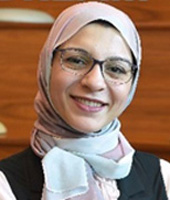 Dr. Areej ElSayary, United Arab Emirates Zayed University.
Dr. Areej ElSayary is a distinguished academic experienced in STE(A)M Education, curriculum design, teaching methodologies, assessment strategies, and school accreditation (NEASC, CIS, and CAEP). Her knowledge and experience extend to her role as a certified associate of the Blackboard Academy, a recognized Fellow of the Higher Education Academy (FHEA), and a respected Editor and researcher.
She previously served as the Graduate Program Coordinator within Zayed University's College of Education. She is an Associate Professor and Assistant Chair for the General Education department within the College of Interdisciplinary Studies. Dr. Areej has conducted numerous impactful teacher training programs across the United Arab Emirates, further elevating the region's education quality. Beyond academia, she is a Mental Health Ambassador at Zayed University, bringing her specialized expertise in positive psychology to promote holistic well-being.
Her research interests encompass a wide spectrum, spanning cognitive development, cyber psychology, human-computer interaction, entrepreneurship, innovation, design-thinking, interdisciplinary STE(A)M approaches, and advanced assessment methodologies.
Abstract
As artificial intelligence (AI) increasingly integrates into our digital lives, its profound impact on human behaviour in cyberspace is becoming impossible to ignore. This keynote presentation delves into the intricate ways AI shapes, guides, and sometimes manipulates our online interactions, with a sharp focus on the psychological and social consequences of these technological advances.
It’ll begin by exploring the landscape of AI-driven technologies that define our digital experiences, from recommendation algorithms on social media and streaming platforms to automated customer service bots and AI-powered virtual environments. These systems are not only designed to engage users by predicting and catering to individual preferences but also subtly alter the ways we interact, communicate, and perceive the world around us online.
A central theme of this discussion will be the impact of AI on individual digital well-being. AI systems, particularly those used by social media platforms, wield significant influence over our emotions, attention, and self-perception. This presentation will explore the dual-edged nature of AI’s impact: on one side, AI fosters community and belonging by connecting like-minded individuals and providing personalized support. On the other side, it can amplify issues like anxiety, depression, and loneliness by creating addictive behaviour patterns, promoting unrealistic social comparisons, and pushing negative content to the forefront.
Furthermore, we will discuss how AI interacts with personality traits to shape cyber behaviour. By tailoring experiences to individual user profiles, AI can resonate with personal characteristics, but it also risks reinforcing biases and encouraging behaviours aligned with certain personality traits while neglecting others. For example, individuals prone to impulsivity might be more vulnerable to AI-driven gambling or shopping prompts. At the same time, those with introverted tendencies may become further isolated by algorithms that cater to their preferences for minimal social interaction.
The presentation will also examine the broader societal implications of AI in cyberspace, particularly how AI can influence group behaviour and societal norms. We will discuss the dangers of echo chambers and polarization, where AI-driven content curation limits exposure to diverse perspectives and fosters divisive ideologies. Additionally, we will critically assess the role of AI in shaping public opinion through subtle manipulation and misinformation.
In conclusion, the presentation will pose critical questions for reflection and discussion:
How can we design AI systems that promote positive cyber behaviour and safeguard individual and collective well-being? What ethical principles should guide the development of AI technologies to ensure they respect user autonomy and privacy? How can AI be harnessed to encourage healthy, balanced online interactions, and what safeguards are necessary to protect vulnerable users from exploitation?
Can Two Human Intelligences (His or Noes) and Two Artificial Intelligences (AIs) Get Involved in Interlinguistic Communication? – A Transdisciplinary Quest
Tuesday, September 10, 2024 / 9:20 AM - 9:55 AM 
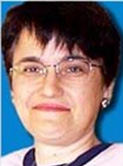 Dr. Ekaterini Nikolarea, Greece University of the Aegean, School of Social Sciences.
Dr. Ekaterini Nikolarea got her BA in English Studies from Greece and her MA and PhD in Comparative Literature from Canada. She was awarded major Canadian Fellowships, Prizes and a Post-Doctoral Fellowship for her contribution to Translation Studies.
Dr. Ekaterini has published articles on theatre translation, reviewed books and articles and authored two Studies Programmes for Applied Linguistics. She taught World Literature, English and Greek (Koine and Modern Greek) in Canadian and US Universities, while being in North America.
Since she came back to Greece, Ekaterini - as an appointed ESP/EAP teacher in the School of Social Sciences at the University of the Aegean, Lesvos, Greece (that is, in the Departments of Geography, Social Anthropology and History, Cultural Technology and Communication and Sociology) - has been teaching Greek students how to move between English and Greek scientific discourses and how to use English scientific discourse when they are required to do that. For twenty-four years now, Ekaterini has been observing her students’ interlinguistic behavior and practice and has been trying to show them how to avoid pitfalls which may lead to a breakdown of scientific interlinguistic communication.
As an ESP/EAP teacher in Greece and trained translation scholar in Canada, Dr. Ekaterini Nikolarea has come to explore how one can move with ease in two different linguistically knowledge-based environments. To understand this process, Ekaterini has been using her prior knowledge of linguistics and translation studies and her recent involvement with the neuroscience of translation.
In her spare time, Ekaterini does research on teaching foreign languages (especially, English) at a university level and works as a freelance bi-directional translator and interpreter, when her services are required.
Abstract
In this presentation, the presenter will first define what interlinguistic communication involves. Second, she will categorize: (a) the interface between HIs and AIs in two distinct cases in relation to communication; and (b) the interface between two AIs in the language they have been programmed, by providing specific examples. Third, she will try to make a “deep” SWOT analysis why AI is unable to get involved in interlinguistic communication, whereas healthy HIs are able to attain this task. The presenter will base her analysis on neuroscience (Broca and Wernicke, two among other neuroscientists), linguistics, translation studies (Maria Tymoczko) and cultural studies. Finally, the objective of this presentation is to motivate scientists coming from different fields (especially AI specialists) to cooperate with each other in order to learn/know how human nous (mind and/or brain) operates in interlinguistic situations in general and scientific interlinguistic situations in particular (e.g. IIIs Conferences). Should there be such a goodwill cooperation (i.e. dismissing unethical issues), there will be an advanced understanding in learning, education, business, politics and any other aspects of human life.
Image Processing, Computer Vision, Data Visualization, and Data Mining for Transdisciplinary Visual Communication: What Are the Differences and Which Should or Could You Use?
Tuesday, September 10, 2024 / 1:00 PM - 1:35 PM 
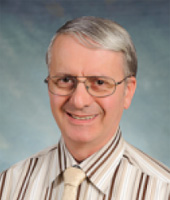 Dr. Richard Segall, USA Arkansas State University, Neil Griffin College of Business, Department of Information Systems & Business Analytics.
Richard S. Segall is Professor of Information Systems & Business Analytics in Neil Griffin College of Business at Arkansas State University in Jonesboro. He holds BS/MS in mathematics, a MS in operations research and statistics from Rensselaer Polytechnic Institute in Troy, New York, and a PhD in operations research from University of Massachusetts at Amherst. He has served on the faculty of Texas Tech University, University of Louisville, University of New Hampshire, University of Massachusetts-Lowell, and West Virginia University. His research interests include data mining, big data, text mining, web mining, database management, and mathematical modeling. His funded research includes that by U.S. Air Force, NASA, Arkansas Biosciences Institute (ABI), and Arkansas Science & Technology Authority (ASTA). He was a member of former Arkansas Center for Plant-Powered-Production (P3) and is a member of Center for No-Boundary Thinking (CNBT), serves on the editorial boards of the International Journal of Data Mining, Modelling and Management (IJDMMM), International Journal of Data Science (IJDS), and International Journal of Fog Computing (IJFC), and is co-editor of five books: (1.) Biomedical and Business Applications Using Artificial Neural Networks and Machine Learning, (2.) Open Source Software for Statistical Analysis of Big Data, (3.) Handbook of Big Data Storage and Visualization Techniques, (4.) Research and Applications in Global Supercomputing, and (5.) Visual Analytics of Interactive Technologies: Applications to Data, Text & Web Mining.
Abstract
Data can be for any discipline, and is only useful if presented, processed, or analyzed in meaningful ways. There are many formats for data such as image, numerical, and ultrasound. Applications can be for medical, data communication, remote sensing, computer vision, and other.
This presentation is to discuss and present what are the differences in purposes, inputs and outputs, and applications between (1.) Image Processing, (2.) Computer Vision, (3.) Data Visualization and (4.) Data Mining. What are these different techniques, and how would you determine which to use for your available data or circumstances? Illustrations of recent studies for each are presented.
Bridging the Gap: Harnessing the Power of Machine Learning and Big Data for Media Research
Tuesday, September 10, 2024 / 1:40 PM - 2:15 PM 
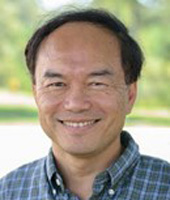 Dr. Li-Jing Arthur Chang, USA Jackson State University, Graduate Program Director.
Dr. Chang is an Assistant Professor at the Department of Journalism and Media Studies at Jackson State University, teaching graduate theory and research courses and supervising projects and theses. His research explores the intersection of data science and journalism, focusing on automatic media content analysis with supervised machine learning and media topic exploration using unsupervised machine learning. His publications include work on fake news detection, the classification of Asian values through supervised learning, and frame discovery in COVID-19 tweets using Latent Dirichlet Allocation (LDA).
Dr. Chang holds a Ph.D. in Data Science from Jackson State University, a Ph.D. in Journalism from the University of Texas at Austin, and an M.A. in Journalism from the Missouri School of Journalism at the University of Missouri-Columbia. He currently serves as Graduate Program Director at the Department of Journalism and Media Studies at Jackson State University.
Abstract
This presentation explores the use of machine learning and big data to enhance mass media research. It covers topics such as principles of machine learning relevant to media studies, the integration of computational methods with media research, data collection and preprocessing techniques, visualization of research findings, machine learning research tools, data quality and bias, ethical considerations, cross-disciplinary skills and knowledge, and best practices in data-driven research. Additionally, the paper addresses the status of media research with machine learning and big data, discussing its impact and contributions to academia and society, as well as the future challenges it may face.
Examination of AI and Conventional Teaching Approaches in Cultivating Critical Thinking Skills in High School Students
Tuesday, September 10, 2024 / 2:20 PM - 2:55 PM 
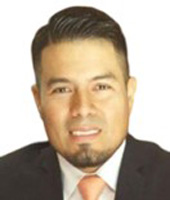 Professor Luis Felipe Castillo, Perú Universidad Tecnológica del Perú.
Professor Luis Felipe Castillo Montalván is currently working as an researcher at the Universidad Tecnológica del Perú (UTP). His role at UTP involves scientific research and publishing scientific articles in indexed journals. Castillo has a background in Systems and Computer Engineering. He holds a Master's degree in Systems and Computer Engineering from the Universidad Católica Santo Toribio de Mogrovejo.
Professor Castillo is a professional with strong values and a broad business vision, capable of formulating and implementing IT plans based on short, medium, and long-term company objectives. He has expertise in information technology auditing and computer security, with skills in obtaining and analyzing information and synthesis capacity.
Abstract
At the heart of the global educational transformation is artificial intelligence (AI), a technology that promises to revolutionize teaching and learning methods. In this conference we want to address a case study carried out, where a comparative analysis was carried out between AI and traditional learning methods in secondary education, with a focus on the development of critical thinking. Taking secondary education students as a case study, we explored the contribution of AI to critical thinking and evaluated its ethical and practical challenges.
Critical thinking is an essential skill in modern society, allowing individuals to analyze, evaluate and solve problems effectively. AI, with its ability to personalize and optimize learning, offers an opportunity to improve education. but also raises questions about its impact on the development of critical thinking.
Wednesday, September 11, 2024 Service-Learning as a Pedagogical Practice of Connected Knowing
Wednesday, September 11, 2024 / 8:00 AM - 8:35 AM 
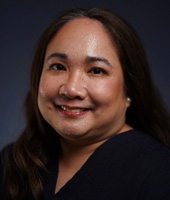 Dr. Genejane M. Adarlo, Philippines Ateneo de Manila University, Health Sciences Program.
Dr. Genejane M. Adarlo is an Associate Professor and the Director of the Health Sciences Program in Ateneo de Manila University. She has completed her Doctor of Medicine at the University of the East Ramon Magsaysay Memorial Medical Center. She obtained her Doctor of Philosophy in Education from the University of Hong Kong. Her research interests include service learning, global citizenship, science education, and well-being.
Dr. Adarlo's research works focus on various scientific contributions, as evidenced by her publications and citations on platforms like ResearchGate, Google Scholar, and SelectedWorks. As a faculty member at Ateneo de Manila University, Dr. Adarlo plays a significant role in academia, contributing to the field of health sciences through her teaching and research activities
Dr. Genejane M. Adarlo's area of expertise includes service-learning, transformative learning, global citizenship education, science education, health education, and psychological well-being. She has a diverse background in education and health sciences, with a focus on service-learning methodologies and their impact on various aspects of education and community engagement.
Additionally, Dr. Adarlo's research interests extend to topics like comparative education, indigenous people rights, disaster risk management, and Ignatian leadership within the context of service-learning programs. Her academic contributions reflect a strong commitment to exploring the intersection of education, community development, and personal growth through innovative teaching approaches like service learning.
Abstract
Society faces a significant crisis marked by environmental degradation, inequality, cultural imperialism, human rights violations, and rising poverty. Education, as a catalyst for social transformation, plays a crucial role in addressing these challenges exacerbated by globalization. Service-learning, an educational practice that integrates community service with academic learning, has been proposed as a powerful pedagogical approach to connect knowledge with real-world experience. While much of the existing research focuses on quantitative outcomes, a gap exists in understanding how students construct knowledge through service-learning from a qualitative perspective. Hence, this study examines service-learning as a pedagogical practice of connected knowing, which views knowledge as interconnected and interrelated, in contrast to separate knowing, which emphasizes objectivity and detachment. A thematic analysis of written reflections of undergraduate students from diverse disciplines shows that service-learning can facilitate connected knowing by providing opportunities for perspective-taking, empathetic understanding, relationship-building, reciprocity, collaborative problem-solving, and contextualized and relational learning. These findings can inform pedagogical practices, curriculum design, and program evaluations in promoting positive social transformation through education and addressing societal challenges brought about by globalization.
Drama Techniques and Language Teaching: An Interdisciplinary Approach to Training Pre-Service English as a Foreign Language Teachers
Wednesday, September 11, 2024 / 8:40 AM - 9:15 AM 
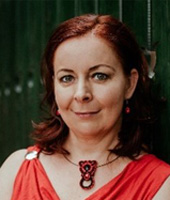 doc. PaedDr. Andrea Puskás, PhD, Slovakia J. Selye University, Faculty of Education, Department of English Language and Literature.
Dr. Andrea Puskás works at the J. Selye University, a Hungarian minority university located in Komárno, Slovakia. She obtained her PhD degree from English literature from Eötvös Loránd University in Budapest, Hungary. Currently, she is a habilitated associate professor and the head of the Department of English Language and Literature at the Faculty of Education, in J. Selye University.
Her main research interests span the methodology of teaching English as a foreign language, English as a foreign language (EFL) teacher training, drama techniques in foreign language teaching and teaching English and American literature to pre-service EFL teachers. She has organized several workshops on using drama techniques in language teaching and actively participates in designing courses and study programs for pre-service EFL teachers in Slovakia, Komárno.
Abstract
Drama techniques have been used in foreign language teaching because the need for learner engagement, self-expression, and authentic communication have been the most significant priorities of the most recent language teaching approaches and methods. Improving the most important ‘Cs’ in education (e.g., creativity, critical thinking, cooperation, communication, or character) is a crucial factor that needs to be considered when designing and refreshing higher education teacher training programs. The promotion of the most crucial ‘Cs’ can be achieved by incorporating educational drama and the most basic drama techniques in EFL teacher training. Using drama in the training of EFL teachers can lead not only to more confident language users but can contribute to raising trainees’ self-awareness and increasing their open-mindedness, has an influence on their creative choice of teaching methods, techniques and strategies during their teaching practice and even has a significant impact on personality development. The paper shows how drama techniques have been applied in EFL pre-service teacher training courses at the J. Selye University in Slovakia and how these courses have affected EFL teacher trainee’s attitudes, opinions and behavior.
Impact of Artificial Intelligence on Education
Wednesday, September 11, 2024 / 9:20 AM - 9:55 AM 
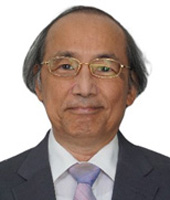 Dr. John Jenq, USA Montclair State University, School of Computing.
Dr. John Jenq is Associate Professor in the School of Computing of Montclair. He received B.Ed. in Science Education from National Changhua University of Education, Taiwan, MS and Ph. D. in Computer Science from University of Minnesota, Minneapolis, Minnesota. His research interests are in the area of parallel processing, image processing, neural networks, and intelligent web-based systems.
Dr. Jenq's research focuses on several areas within computer science:
Parallel processing Image processing Neural networks Intelligent web-based systemsAbstract
Artificial intelligence has been a research area within computer science for many decades. Advancements in the 1980s led to successful developments in expert systems, which emulates the decision-making and reasoning abilities of a human expert. One of the earliest well-known examples of chatbots is ELIZA, which was developed at MIT in the late 1960s. Since then, chatbots have evolved greatly and recently gained recognition after ChatGPT became viral in 2022. Nowadays, the availability of large language models and generative AI enables people to easily create their own AI systems in almost any field. In this talk, we would like to discuss the most recent developments in AI technology, and also why and how these developments will greatly impact our education and our society.
Measurement for Software Supply Chain Risk
Wednesday, September 11, 2024 / 1:00 PM - 1:35 PM 
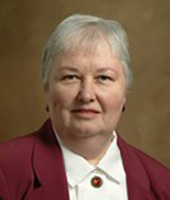 Dr. Carol Woody, USA Carnegie Mellon Institute, Software Engineering Institute (SEI), CERT (Computer Emergency Response Team) Division.
Dr. Carol Woody is principal researcher for the CERT division of the Software Engineering Institute. She focuses on cybersecurity engineering for building capabilities and competencies to measure, manage, and sustain cybersecurity and software assurance for highly complex software-reliant systems and systems of systems. She has been a member of the CERT technical staff for over 20 years. Dr. Woody coauthored a book Cyber Security Engineering: A Practical Approach for Systems and Software Assurance published as part of the SEI Series in Software Engineering. The CERT Cybersecurity Engineering and Software Assurance Professional Certificate, a self-paced online training program, is based on research she led.
Abstract
Systems today are primarily assemblies of reused and 3rd party components many of which are Open-Source software. The reuse of software has enabled faster fielding of systems, but all software comes with vulnerabilities, and attackers have expanded their capabilities to exploit the software supply chain, especially Open Source which provides broad accessibility. Managing this risk requires the ability to measure and monitor it, but the information is scattered among acquirers, suppliers, system and software engineers, developers, testers, and verifiers. The Software Engineering Institute (SEI) has explored many aspects of software measurement. Over the history of software engineering, we have learned that software metrics for both the process and the product are needed. We have also explored many aspects of cybersecurity measurement and determined that we must be able to measure the processes for developing and using software and determine how those measurement results affect the resulting product’s cybersecurity.
Thoughts, Labyrinths, and Torii
Wednesday, September 11, 2024 / 1:40 PM - 2:15 PM 
 Dr. Maurício Vieira Kritz, UK/Brazil University of Manchester, Faculty of Biology, Medicine, and Health / National Laboratory for Scientific Computing and Knowledge Diffusion Multi-institutional, Multi-disciplinary Graduate Program, Petrópolis.
Dr. Maurício Vieira Kritz affirms that affirms that "I have been attracted to science while still in high-school. Ever since, I considered specialisation harmful to our knowing and to humankind’s interests. I entered college aiming at physics, blended into mathematics, and graduated with mayors in mathematical-physics and informatics. While working at the Brazilian Bureau of Censuses, I got a M.Sc in statistics and sampling, disciplines I missed in my background. My work at the Bureau also included the development of computer simulators for socio-economic phenomena. Adhering to general systems framework as a firm ground for my thinking was quite natural in that context. During this time, I co-authored a document that became the founding stone of the Brazilian National Laboratory for Scientific Computing years later. My PhD work addressed computational modelling of physical phenomena, although this term didn’t exist yet. Just after obtaining my PhD, I became the leader in a project that aimed to computationally model artificial lakes in the Amazon region. This task had launched me into an adventurous quest to find simpler ways to describe, investigate, and understand ecological and living phenomena. This quest, centred since its onset on organisation and information ideas, still fuel my thoughts today. Decades after the Amazon project, I became co-PI to the flooded areas group in a multi-institutional network set up to model the Amazon landscape in all its dimensions: geo-physical, biotic, socio-economic, and human. Both projects provided me with the opportunity to visit scientific field sites in the jungle and to work with field ecologists. I have taught short and regular courses since graduating on several subjects, and regularly on modelling techniques—a central perspective in my scientific thinking—since 2008."
Abstract
Based on recently proposed models for the interrelation between communication, dialogues, and messages, that address the role of dialogues in communication and learning, I shall advance some other hypotheses this time concerning the relation between mind-processes, brain-organisation, and knowledge-creation which ground on the following entities. Thoughts are still to be defined. I shall only advance a crude, roughly delineated description of what may a thought be, in the hope to encourage further investigations. Labyrinths are labyrinths, a situation or place wherefrom one cannot get out easily, if at all. The Japanese word Torii symbolises in this talk gateways leading to new, more encompassing, (meta) level of understanding and explaining, which may be associated with a non-trivial reorganisation of our minds and, eventually, brains. Finally, I shall discuss how these three things apparently interact to evolve beauty, knowledge and wisdom, counterpointing them with the observation-comprehension-assimilation cycle in the scientific process. To motivate the above and put all this in context, I shall first tell you a story, a true story although recalled from the mists of my time, of which I hold the key. Keywords: messages, dialogues, self-communication, knowledge creation, explanations.
A Cybernetic Metric Approach to Course Preparation
Wednesday, September 11, 2024 / 2:20 PM - 2:55 PM 
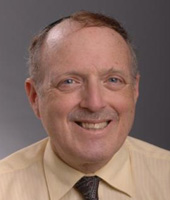 Dr. Russell Jay Hendel, USA Towson University, Department of Mathematics.
Dr. Russell Jay Hendel holds a doctorate in theoretical mathematics from M.I.T., an associateship from the Society of Actuaries, and a doctor of science in Jewish studies from the Spertus Institute for Jewish Learning and Leadership. He is currently an Adjunct III faculty member teaching actuarial mathematics at Towson University which is a Center of Actuarial Excellence. His research and publication interests include discrete number theory, actuarial science, biblical exegesis, the theory of pedagogy, applications of technology to pedagogy, and the interaction of mathematics and the arts. He hosts a website, rashiyomi.com, devoted to explaining the literary methods of Rashi a major biblical commentator. He regularly reviews papers for the American Mathematical Society and also reviews books for the Mathematical Association of America. He is a current member of the American Mathematical Society, Mathematics Association of America, and AMIT, a charitable organization that oversees an educational network in Israel and was named the top educational network in Israel by the Ministry of Education using both quantitative and qualitative metrics for the past few years. He has been listed as a noteworthy Educator by Marquis Who's Who and functioned in the capacity of Coordinator of Judges for the New York Mathematics Fair, 1995-2018. He resides in Baltimore, where he is co-president of the local AMIT chapter and is also a member of the AMIT President’s Circle.
Abstract
This talk summarizes several papers and books given by the author over the past few years in which simple countings, metrics, prove useful in improving all aspects of course pedagogy: Delivery, retention, performance, and satisfaction. The term cybernetic simply means that these metrics are independent of course content but rather, as the term cybernetic implies, reflects the general internal flow and connectedness between different parts of the course content. In several cases the metric approach replaces current approaches and is easier to implement. During the talk we will first review two-ness as a metric replacement to good pedagogy. Here two-ness refers to pedagogy addressing multiple (at least 2) parts of the mind for example, verbal and algebraic, or algebraic and geometric. Two-ness is easier to implement than many pedagogical hierarchies. We next review the use of multiple (2 or more) dimensions as a basis for using matrix organizers (tables); matrix organizers are successful at significantly improving pedagogy even in mentally handicapped individuals. We also review a simple interference metric, measuring the number of parts of methods or solutions that can get confused as a measure of topic difficulty which can be eliminated with more time to pedagogy. A variety of other metrics are also reviewed such as the use of a set of core principles to cover a subject, for example, the principles governing personal pronouns or the principles governing solutions to equations. It is then shown that such a perspective can lead to significant improvements in course exercises and homework problems as well as pointing to specific methods of instructional delivery such as the Cornell Note Taking method adopted to instruction.
Thursday, September 12, 2024 Can the Methodologies of Psychology and Physiology Approach the Issues of What Art Is and What Beauty Is?
Thursday, September 12, 2024 / 8:00 AM - 8:35 AM 
 Professor Ryohei Nakatsu, Japan Kyoto University, Disaster Prevention Research Institute.
Dr. Ryohei Nakatsu is a Specially Appointed Professor in the Art Innovation Academia-Industry Joint Research Division of Disaster Prevention Research Institute in Kyoto University.
Professor Ryohei Nakatsu received B.S., M.S., and Ph.D. degrees in electronic engineering from Kyoto University in 1969, 1971, and 1982 respectively. After joining NTT (Nippon Telegraph and Telephone) in 1971, he mainly worked on speech recognition technology. In 1994, he joined ATR (Advanced Telecommunications Research Institute) as Director of ATR Media Integration & Communications Research Laboratories. In 2002 he became Professor at the School of Science and Technology, Kwansei Gakuin University. From March 2008 until December 2014, he was a Professor at the National University of Singapore (NUS) and was Director of the Interactive & Digital Media Institute (IDMI) at NUS. Now he serves as a Specially Appointed Professor at Disaster Prevention Research Institute, Kyoto University. Also, he is serving as CEO of NT & Associates.
Abstract
Because art encompasses an extremely broad field, it is difficult to approach the general question of what art is and what beauty is. I am attempting to approach this question using psychological and physiological methods. As a target artwork, I focus on the art of Naoko Tosa, an artist with whom I am collaborating. She uses high-speed cameras and other technologies to extract the beauty latent in nature and turn it into video artwork. Therefore, her art is suitable for a scientific approach in the sense that it is closer to natural phenomena than art painted with paintbrushes, etc., Here, I will present some recent research results, including those presented at this conference: 1) I verified through psychological evaluation that art appreciation enhances creativity in humans; 2) I verified through analysis of electrocardiographic data that art appreciation induces a special state in human physiology; 3) I verified that art appreciation induces positive sensations and negative sensations at the same time by psychological evaluation.
The Ethics and Responsibilities of Data Analysis, Visualisation and Storytelling
Thursday, September 12, 2024 / 8:40 AM - 9:15 AM 
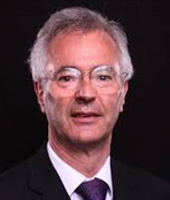 Richard Self, LLM, UK University of Derby, The School of Computing and Mathematics, Senior Lecturer in Governance of Advanced and Emerging Technologies.
Richard Self is a Senior Lecturer in Governance of Advanced and Emerging Technologies at the University of Derby in the UK. He gained his business background during 30 years at Rolls-Royce before changing to academia in 2002.
His approach to students is not to teach answers, rather he inspires, challenges, mentors and guides his students to find important questions and then how to research to find relevant answers for the specific context using interdisciplinary approaches. He guides the students into their own experiences in order to find the insightful questions that motivates them to their best work. His focus is on inspiring students to evaluate their personal and employability skills and then to develop their full range of skills in order to become the most employable graduates in the market. This is based on research into a range of teaching and assessment approaches that can demonstrate measurable improvements in their academic skills and in their transferable skills. This research is published at conferences and in journals.
Abstract
Most researchers in most subject areas feel the need to both analyse some data that their research has generated using statistical techniques in order to identify the interesting outcomes. There is then pressure to provide visualisations that draw the readers' attention to the most significant points. We, therefore, understand some of the issues that can arise during this process, often being found out during the peer review processes.
In the field of data science, there is less use of peer review, and we find all sorts of problems with the analysis, visualisation techniques and the eventual story telling that lead to egregious claims that are not supported by the facts.
This address will examine a few cases in order to draw attention to the ethics that we should be following in the way we analyse, visualise and then tell our story about our research.
The Greek-Roman Theatre in the Mediterranean Area
Thursday, September 12, 2024 / 9:20 AM - 9:55 AM 
 Professor Maria Rosaria D'acierno Canonici Cammino, Italy University of Naples Parthenope, Faculty of Motor Sciences and Law; and University of Naples Federico II, Napoli.
Professor Maria Rosaria D'acierno Canonici Cammino is a linguist and professor of English and Linguistics at Università Parthenope in Napoli. Her academic background includes degrees in Foreign Languages, Philosophy, and Islamic Studies, as well as a Master’s in Clinical Pedagogy. She has researched bilingualism and multilingualism, focusing on linguistic and socio-cultural issues related to immigration. Her publications cover various topics, including political language, advertising, and English for special purposes. With international experience from Essex and Reading Universities, she has presented at numerous conferences and contributed to mental health research. Her recent works include books on Arabic grammar and cross-cultural studies, reflecting her dedication to bridging linguistic and cultural gaps.
Her academic titles are the following: - 2011 PhD in Faculty of Arab-Islamic Studies, Università L'Orientale, Degree in Languages, History and Cultures of Islamic Countries (Arabic-Urdu) with thesis in philosophy.
- 2008-9 Certificates of attendance for Arabic Language courses at University of Tunis El Manar, Bourguiba Institute of Modern Languages.
- 1994 PhD in Philosophy, Istituto Universitario Orientale Napoli. Thesis in Psycholinguistics: "The language of Italian emigrants in the Chicago area."
- 1991 Final Charter for Operator and Researcher in Applied Human Sciences, experimental teaching and psychotherapy with focus on verbal and non-verbal communication (Five-year Course Dir. Prof. S. Piro).
- 1992 Additional Charter of psychotherapeutic training for operator in psychotherapy with focus on linguistics.
- 1999 Master's in Clinical Pedagogy and registration to Professional Register no. 2139.
- 1999 Provincial Director of National Association of Clinical Pedagogists ANPEC.
- 2000 Expert at the Research Center for Psychiatry and Human Sciences (Dir. Prof. C. Pastore) for linguistics.
- 1970 PhD in Foreign Languages and Literatures (Four-year English, Three-year German, Two-year French), Istituto Universitario Orientale, Napoli.
Among latest publications are the following: - 2024 Teatri e Anfiteatri Greco-Romani, L’Orientale editrice, 2024.
- 2021 The evolution of the idea of God – a socio-anthropological perspective, L’Orientale Editrice.
- 2021 La fiaba tra il reale e il fantastico, L’Orientale Editrice..
- 2018 Il velo che svela. La donna tra Oriente ed Occidente, Aracne editrice, Roma.
- 2018 Panchatantra and the reading skill – The philosophical view about animals, Irfan editrice Roma.
- 2016 Arabic Grammar: The Root System, Irfan Edition, Roma.
- 2016 Speaking English while Drinking Wine, Reading Universal Press, England.
- 2014 Music and Medicine from East to West:Ibn S†na- Sergio Piro, Irfan Edition.
- 2012 Business English, Reading Universal Press, England.
- 2012 Ready, Get set, Go - English and Sport, Reading Universal Press, England.
- 2011 Contrastive Analysis and Translation in a plurilingual context: Arabic, Italian and English., Edizioni Irfan.
- 2018, Summary writing for EFL students in English, Athens 7-29 luglio 2018
- 2000, The Verb Phrase, Discourse Analysis and Verbs in the English Language, L’Orientale Editrice.
Abstract
In this research the aim is to focus on three main issues: 1) the origin and the evolution of the theatre and its social role (F. Milizia) within the Mediterranean area, 2) the importance of the Greek and Roman culture, which, while conquering new lands, spread their culture, too, and 3) how theatres evolved under the Greeks, and under the Roman Empire. The fusion of these two cultures left its sign whenever and wherever it arrived. The Greek-Roman theatres are an example of the importance of fusing cultures; a fusion which enriches both the people conquered and the people conquering. Some authors (C. Anti, A. Neppi Modona, O.A.W. Dilke,E. Gebhard, J.C. Moretti) attest that there is evidence of theatres throughout the Mediterranean area even in the pre-Greek age. The contacts among the ancient people living around the Mediterranean were first established by the Phoenicians, whose skilled merchants and sailors had the only aim to trade their products (timber, metals, and textiles) across Egypt, Mesopotamia, Anatolia and Greece. In so doing they enriched their own culture and spread it to other countries in a peaceful way. This is the first example of peaceful communication among peoples. While going through the history of theatres, we will find other examples of peoples who after crude wars understood that the best way to conquer foreign lands is to welcome its people, accept and respect their traditions: Cyrus the Great, Alexander Magno and the Pax Romana (Augustus, 27 b. C. up to Marcus Aurelius) are good examples to be followed, especially nowadays in a world destroyed by wars, which kill people, culture and economy. As Mazzarino claims, even pre-archaic Greeks did not distinguish among different bloodlines, so that the Greek constitutional evolution reflects an Ionic as well as a Doric behaviour. The architectural evolution of the theatres reflects this sense of social hospitality, not only for its shape but also because we find theatres all over the Mediterranean countries, each adapted to the specific culture of the place. The people conquered by the Greeks first, and then by the Romans, adapted the theatre to their traditions. So that, we find again theatres all around the Mediterranean area as it was in the pre-Greek era. I need to underline that there has always been a cultural interaction between the Greeks and the Romans. In the 8th and 7th centuries B.C, because of a rapidly increasing population many Greeks emigrated and founded colonies in Southern Italy and Sicily (Magna Graecia), Asia Minor up to the Black Sea. Talking about the Greek-Roman theatres will be the starting point to discuss about peace and aggregation in order to establish a civil tolerant behaviour among peoples following different creeds because of their ethnicity.
Leveraging AI for Transdisciplinary Communication and Interdisciplinary Dialogues
Thursday, September 12, 2024 / 1:00 PM - 1:35 PM 
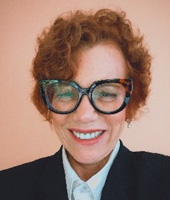 Dr. Risa Blair, USA Purdue University Global, Adjunct Faculty, Department of Humanities and Social Sciences, School of General Education / Instructional Associates, Director of HR and Operations / University of Arkansas Grantham, Manager of Faculty Development.
Dr. Risa Blair has over 25 years in higher education, leadership, technology, and instructional design. She is a dynamic and passionate leader with a wealth of experience in business and higher education. She has a proven track record of success in leading global teams and developing engaging learning experiences for students of all ages. As a curriculum developer, educator, and global professor/trainer, Dr. Blair has dedicated herself to fostering relationships with colleagues and students around the world.
With a diverse educational background including a doctorate in Instructional Technology and Distance Education, as well as masters degrees in both Cybersecurity Management and Organizational Behavior, Dr. Blair brings a unique and comprehensive skill set to her work. She is also a competent job counselor, career consultant, and resume writer, helping individuals navigate their career paths with confidence and success.
In her current role as Manager of Faculty Development at the University of Arkansas Grantham, she participates in the onboarding, training, and development of faculty members. Dr. Blair thrives on speaking and presenting with a long list of presentations and publications on topics ranging from online education to cybersecurity and beyond.
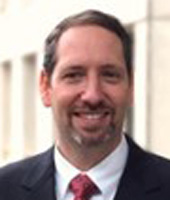 Matthew Schigur, PMP, MPM, MISM, MBA, USA University of Arkansas Grantham, Director of the College of Business, Management and Economics, and the MS Leadership program.
Matthew Schigur has 24 years of experience in higher education, holding positions in academics and academic administration. Some of the positions he has held are Associate Professor, Assistant Professor, Visiting Professor, adjunct instructor, Chair, Faculty Chair – School of Business, Academic Affairs Specialists, Interim Campus Director, Associate Dean – College of Business, Management, and Economics, and most recently Director of the College of Business, Management, and Economics. Matthew is completing his Doctorate in Management and Marketing. Matthew also holds master’s degrees in business administration, project management, and information systems management. Additionally, he is a certified project management professional, academic coach, and advanced tutor. Matthew also has over 37 years of experience in consulting and marketing and digital marketing, entrepreneurship in business development, strategic management, information technology, business analytics, artificial intelligence, and project management for for-profit and non-profit clients.
Abstract
Artificial intelligence (AI) has transformed the learning process and the methods we use to educate. This presentation examines the potential of AI to bridge gaps in transdisciplinary communication and foster interdisciplinary dialogue. We will explore how educators can harness AI to create more integrated and collaborative learning experiences across academic disciplines. The session will offer practical strategies for utilizing AI to enhance collaborative learning, streamline classroom tasks, and support innovative teaching practices. By analyzing real-world examples and introducing AI tools, this presentation will equip educators with the knowledge to effectively incorporate AI into their teaching practices, fostering a dynamic and responsive educational environment. Attendees will gain actionable insights on leveraging AI to manage contemporary classrooms' complexities and promote a culture of cross-disciplinary inquiry and dialogue among students.
Education – A Partial Transdisciplinary Description of Personal Identity
Thursday, September 12, 2024 / 1:40 PM - 2:15 PM 
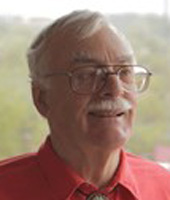 Dr. Jeremy Horne, USA President-Emeritus of the Southwest Area Division of the American Association for the Advancement of Science: AAAS.
He is currently the Chief Executive Officer of the Inventors Assistance League, a non-profit organization dedicated to helping independent inventors bring their creations to fruition. He is doing research and writing in the areas of Logic as the language of innate order in the universe, which is a 40-year project.
Dr. Horne taught many courses in political science and technology, delivered many presentations on the philosophy of scientific methods for the American Association for the Advancement of Science (AAAS) and Quantum Mind conferences, has been reviewer for various journals about the structure and process in binary space, consciousness studies, systems, theory, and philosophy of science, and Documentation Systems Developer, for White Sands Missile Range in New Mexico. His most recent publication consists of two chapters on the philosophy of binary logic and artificial minds in Research and Applications in Global Supercomputing, released by IGI Global Press in March 2015.
Dr. Jeremy Horne earned his Ph. D. in Philosophy at the University of Florida, Gainesville; His Master of Science in Political Science at New Haven, CT, and his Bachelor in Art in International Relations at Johns Hopkins University, Baltimore, He has been a member of the Phi Kappa Phi, National Academic Honor Society, and his name was included in several Who's Who directories.
Abstract
We use the word "education", loosely confabulated with "training" when both more accurately fall under the rubric "schooling". Education exists because of training and, conversely, obeying the most fundamental law, the unity of opposites. Yet, an "educated person" is often set apart from the perceived "unwashed masses", they are not so distantly removed from our primate ancestors, dragging their knuckles across the terrain. Trainees are supposed to obey the commands of the educated. Without social context, "education" is a mere word devoid of content. An apparent paradox in the US is the state of its school system, which produces graduates, only half of whom can read past the eighth grade. Our "education" and hubris have managed to bring the much-vaunted homo sapiens sapiens to the brink of extinction. Effects have causes, and impelling our current dilemma is disordered personal identity, and the absence of real education is responsible, despite the "sapiens" designation.
Schooling exists under the rubric of "formalizing awareness", this a process as well as an object, resulting in one’s becoming, an organic phenomenon. Supervening the hedonistically-characterized path of human development are the mandates of the transcendental realm, represented by the words of Buddha, Christ, Mahoma, Aristotle, and Plato, among others. The "trans" in "transdisciplinary" means "across", with truth (its object and method of seeking it) existing in all domains, permeating the Universe, and our search for it necessitating our exploring all regions. So, "trans", in this regard, mirrors the "trans" in "transcendental". Truth characterizes the Creator, and so is the object of search in education. Training validates it, evidenced by virtue (internalizing maximal behavior). Truth bespeaks one’s identity, its integrity a function of order. A disordered identity compromises a person’s being, and conversely. Two methods of identity location are neurocorrelation and deep personal questioning (as with the Voris method).
Project of Dialogues Oriented to the Co-Construction of the Notion of “Education”
Thursday, September 12, 2024 / 2:20 PM - 2:55 PM 
 Dr. Nagib Callaos, USA President of the International Institute of Informatics and Systemics: IIIS.
Dr. Nagib Callaos earned his Ph.D. in Operations Research (Mathematical Optimization) at The University of Texas at Austin. In his doctoral dissertation, he presented A Mathematical Solution to The Voter (or Condorcet) Paradox, which by then has 160 years with no solution, and showed the internal contradictions of the axioms used by Nobel Laureate to “prove” his famous Impossibility Theorem that announces the impossibility to solve the Voter Paradox.
Dr. Callaos earned his Electrical Engineering Degree at the Central University of Venezuela, and his Master's Degree in Electrical Engineering (in Electronics) at The University of Texas at Austin, and received, for 4 years, full-time formal courses in Philosophy, in his post-doctorate studies.
Dr. Callaos is the founding president of the International Institute of Informatics and Systemics (IIIS) and the founding president of the Journal of Systemics, Cybernetics, and Informatics (JSCI). He is the former Dean of Research and Development of the University Simon Bolivar and was the founding president of several organizations on research, development, and technological innovation, e.g. The Foundation of Research and Development of the University Simon Bolivar, the founding president of the Venezuelan Fund for Technological Innovations (created by presidential decree), The founding president of the Venezuelan Association of Executives in Patents and Copyrights, etc. His main research and professional activities were in the area of Systemic Methodologies of Information System Development, Group Decision Support Systems, and Action-Research, mainly via Operations Research. He tutored more than 100 undergraduate and graduate theses and produced more than 100 research papers and reflection articles.
Abstract
After roughly 5,000 years of educational institutions and a wealth of books and articles on education, are there any new perspectives to consider? Two key additions come to mind: 1) reflexive practice, a core concept in Second Order Cybernetics, and 2) the involvement of stakeholders, particularly students, which is a necessary condition in any transdisciplinary research.
The notion of education is very likely the most transdisciplinary notion in both etymological senses of the prefix "trans-", that is, across and beyond disciplines. Parental education is an example of the latter. Informal education obtained through interacting with peers is another well-known example. Education occurs throughout life and beyond it. Well-known examples are Aristotle, Plato, etc. who are among the many who continue being educational sources, beyond the time they lived. The purpose of this project of dialogues is to collaboratively develop a holistic understanding and comprehension of the notion of education that transcends academic disciplinary boundaries.
We think that it may be necessary to add to the plethora of philosophical and scientific articles and books on this subject, reflexive practice from educators, and reflections from students, who are the most principal stakeholders, who should be represented in any Transdisciplinary Research.
The results of these dialogues may be oriented to the following objectives: - Support academics in improving their educational effectiveness within their respective disciplinary or interdisciplinary fields.
Contribute to qualitative research in the field of education, both in education sciences and educational practices. This can lead to:
2.1. Research articles based on the ideas generated.
2.2. Essays based on reflections and/or reflexive practice. That is, reflecting on the educational process and/or reflexivity on the educational experience that an educator has had. The latter is a necessary condition in Second-Order Cybernetics. These essays can be produced by:
2.2.1. Students who are stakeholders whose participation is required as a necessary condition in any transdisciplinary research, and
2.2.2. Educators who can combine reflections and reflexivity based on their own educational practice.
Virtual dialogues have become a very effective tool for qualitative research, especially in the wake of the COVID-19 pandemic. They have proven valuable for accessing geographic and cultural diversity, which is particularly useful in transdisciplinary research. Virtual conferences offer the advantage of being not only informative but also educational, allowing for collaborative co-construction of knowledge. This can enhance understanding due to the variety of intellects interacting on a topic, especially if it is transdisciplinary. Virtual dialogues have the potential to increase intellectual and cultural variety, creating a more complex system that can generate more emergent properties to be shared by all participants. This can lead to more implicit and explicit education. The combination of virtual dialogues with written dialogues can enhance both spontaneity and reflection, increasing the complexity of the system and the likelihood of generating emergent properties. Importantly, in transdisciplinary research, the participation of stakeholders (such as students) is fundamental, as they are the main interested parties in formal education.
In-person dialogues provide a wider communicational bandwidth because more body language is conveyed. However, virtual dialogues offer immensely larger intellectual and cultural variety. This diversity creates a much greater potential for complexity and, consequently, emergent properties that can be shared by all participants.
|

